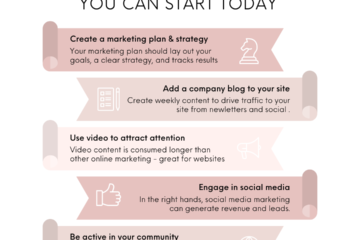I have been working on refining and expanding my DIY SEO resource for 2025. I am super excited about that; it will be an awesome resource for your business!
Since I get so many questions about finding keywords, I wanted to share some tips on available keyword research tools and which might be the best for you.

10 Inexpensive, User-Friendly Keyword Research Platforms
Here’s a list of inexpensive and user-friendly platforms small business owners can use for keyword research in 2025:
1. Google Keyword Planner (Free)
- Why it’s great:
- It’s free and comes directly from Google, providing reliable keyword data.
- Offers keyword suggestions, search volume, and competition level for keywords.
- Best for: Beginners who want to focus on Google-based SEO for their business.
- Pro tip: Use it to identify long-tail keywords and pair it with Google Trends to analyze seasonal keyword patterns.
2. Ubersuggest (Freemium)
- Cost: Free version available; paid plans start at $12/month.
- Why it’s great:
- Developed by Neil Patel, it’s beginner-friendly and offers keyword suggestions, search volume, SEO difficulty, and competitor analysis.
- Includes content ideas and backlink suggestions for your site.
- Best for: Small businesses on a budget who want a balance of features for keywords, content ideas, and SEO audits.
3. AnswerThePublic (Freemium)
- Cost: Free for limited searches; paid plans start at $9/month.
- Why it’s great:
- Visualizes keyword suggestions in a “question” format (e.g., What, Why, How), which is perfect for blog and FAQ content.
- Great for finding long-tail keywords and understanding what potential customers are searching for.
- Best for: Businesses looking to create blog content or answer customer questions effectively.
4. Keywords Everywhere (Freemium)
- Cost: Free browser extension with limited data; pay-as-you-go credits (starting at $10 for 100,000 credits).
- Why it’s great:
- Displays search volume, competition, and cost-per-click (CPC) data directly on Google, YouTube, Amazon, and other platforms.
- Provides keyword suggestions and trends as you browse.
- Best for: Users who want on-the-go keyword insights while searching online.
5. SE Ranking (Starts at $39/month, with a free trial)
- Why it’s great:
- Offers keyword research, rank tracking, competitor analysis, and backlink monitoring all in one place.
- Known for its user-friendly interface and precise local SEO data.
- Best for: Small businesses that want an all-in-one SEO solution at an affordable price.
6. Moz Keyword Explorer (Freemium)
- Cost: Free for limited searches; paid plans start at $99/month but often offer discounted trials.
- Why it’s great:
- Offers detailed keyword data, including search volume, ranking difficulty, and potential for organic clicks.
- Easy-to-understand interface with actionable suggestions.
- Best for: Businesses that need deeper insights into keyword difficulty and click potential.
7. Rank Math (Free for core features)
- Why it’s great:
- WordPress plugin with a built-in keyword research tool.
- Simplifies keyword research and optimization directly within WordPress while writing posts.
- Best for: WordPress users who want integrated SEO tools without leaving their site editor.
8. Serpstat (Starts at $55/month, but offers cheaper pay-per-use options)
- Why it’s great:
- A cost-effective alternative to tools like SEMrush, offering keyword research, rank tracking, and competitor analysis.
- Excellent for local SEO insights and smaller websites.
- Best for: Businesses looking for affordable competitor insights alongside keyword research.
9. Google Trends (Free)
- Why it’s great:
- Shows keyword search trends over time, which helps plan seasonal campaigns.
- Compare multiple keywords or locations to spot popular terms in your industry.
- Best for: Small businesses that want to identify trending keywords or monitor local search interest.
10. Soovle (Free)
- Why it’s great:
- Pulls autocomplete suggestions from multiple search engines like Google, Bing, YouTube, Amazon, and more.
- Quick and easy to use for brainstorming keywords on different platforms.
- Best for: Multi-channel marketers who want ideas for Google, YouTube, and e-commerce platforms all at once.
Recommendations for Different Needs:
- Tight budget: Google Keyword Planner, AnswerThePublic, or Google Trends.
- Content-heavy businesses (e.g., bloggers): Ubersuggest or Keywords Everywhere.
- Local SEO focus: SE Ranking or Serpstat.
- E-commerce businesses: Keywords Everywhere or Soovle (to target Amazon shoppers).
- WordPress users: Rank Math or Moz.
How to Use Keywords
If you are not sure how to use Keywords in your blog posts, pages, and social media, check out this article on Keyword Mapping and this one on Finding Keywords for your business. Here is a great article that breaks down another way to find keywords and research them using Google and Search Results.
Applying Keywords
Keywords are applied to your blog posts and pages in the title, in headings, and in the conversation. Use no more than 2-3 per post or page. You should also use the main focus keyword in your metadata as well.
On social media channels, your keywords are located on your bio page and in the content of each publication you make,
I hope this helps you! If you need more assistance, we can meet 1-1 for a consultation and focus on your business specifically.



0 Comments